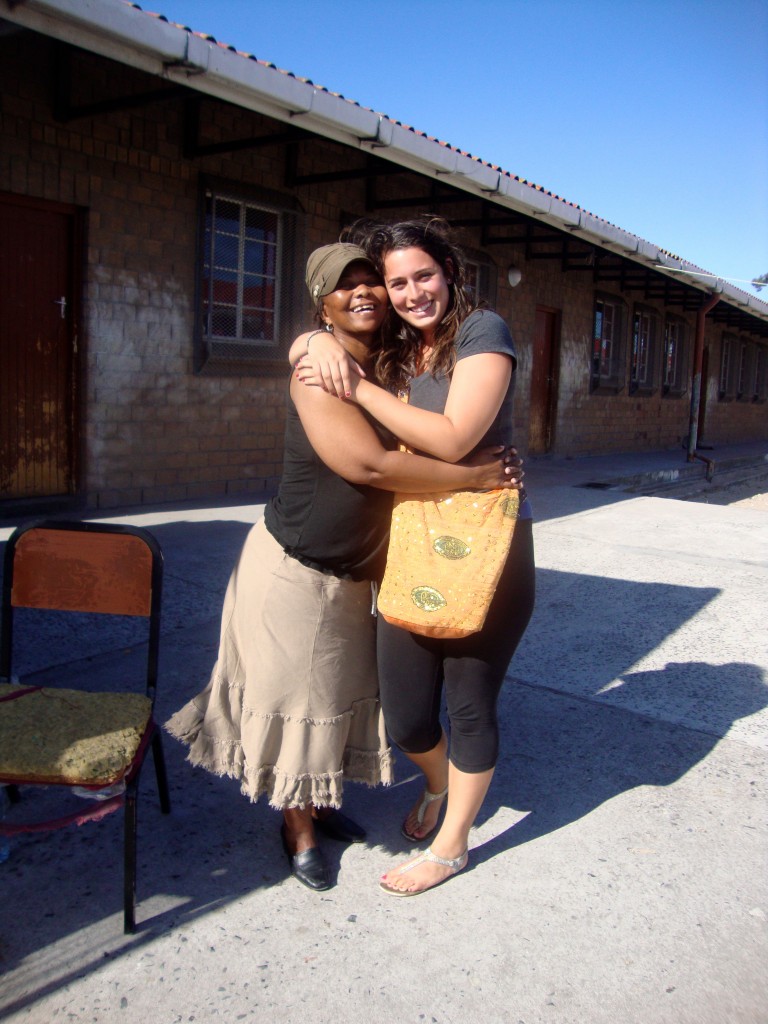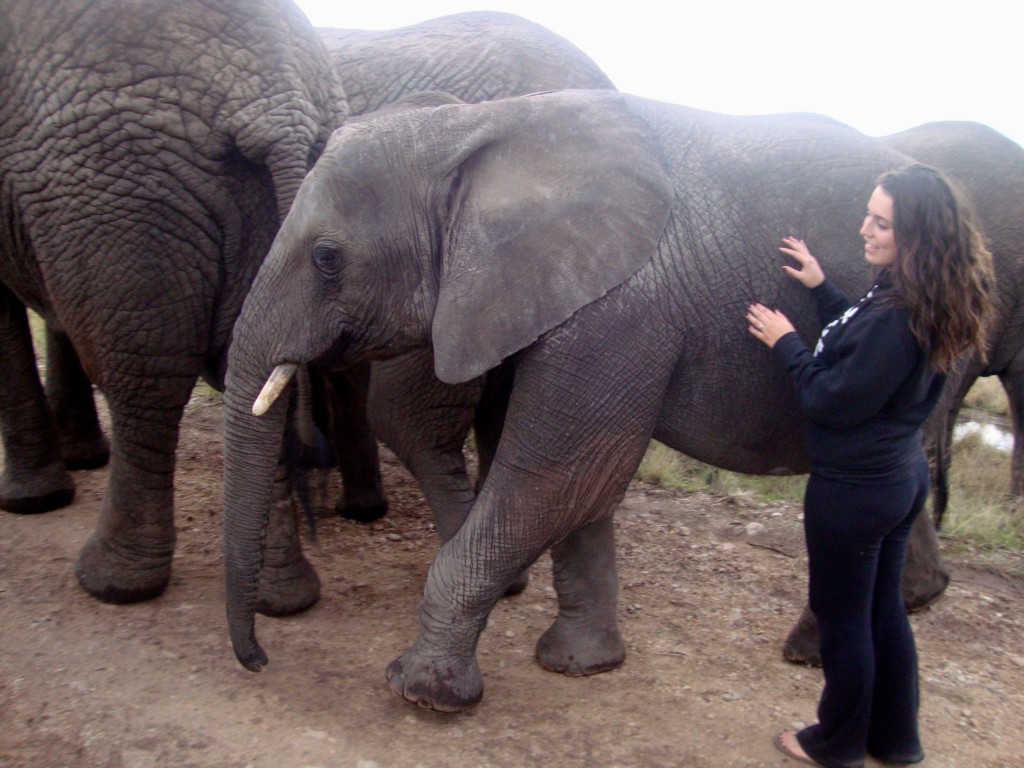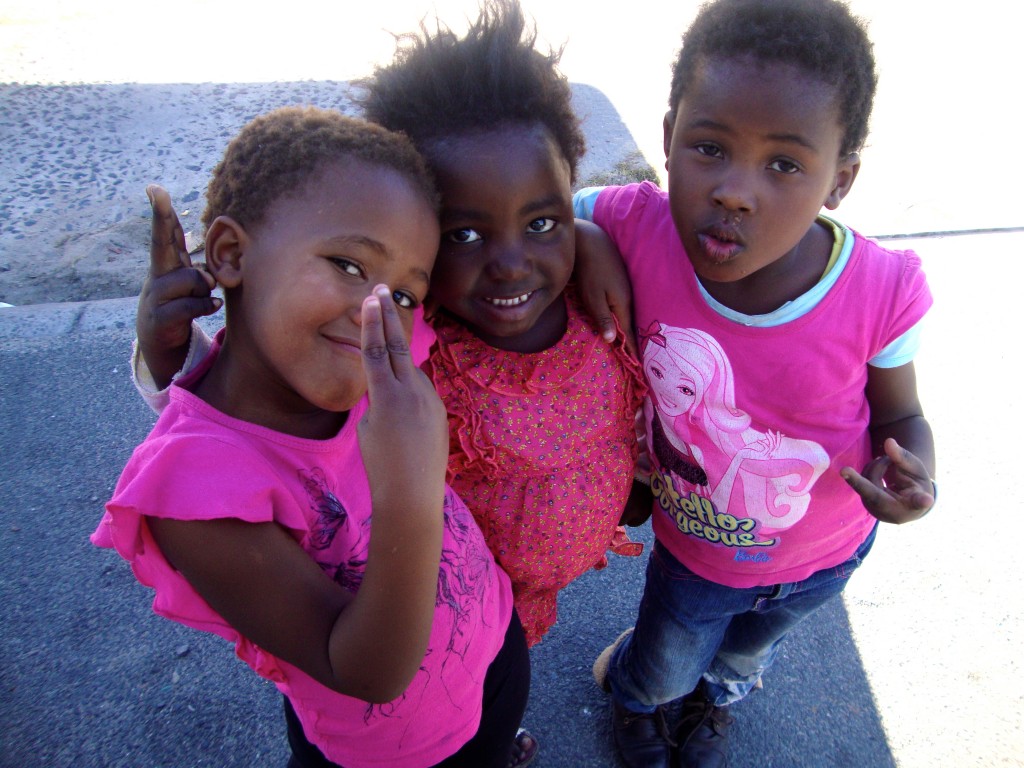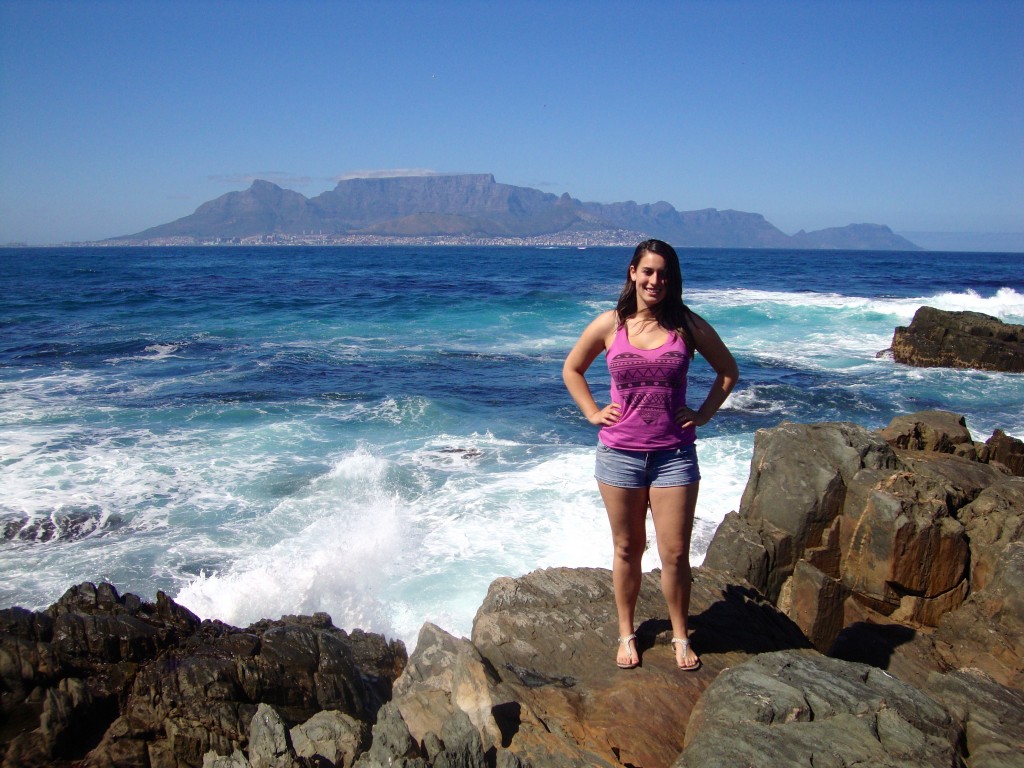
In 2012, the Learning Enrichment & Academic Resources Network (L.E.A.R.N.) sponsored Faith Govan, a student at Whittier College, for the Amy Biehl South Africa Fellowship. The Foundation was named after Amy Biehl, a Stanford graduate and Fulbright Scholar to South Africa who worked with members of the African National Congress (ANC) and the University of Western Cape’s Community Law Centre on the new Constitution and Women’s Rights. During this work, she helped register voters for the country’s first free election in 1994. Sadly, at the age of 26, Amy Biehl’s life was tragically cut short in an act of political mob violence in the Guguletu township just outside of Cape Town. A fellowship was created in her name to fund projects to provide children and youth a safe environment in challenged and vulnerable communities.
An NBC article this week on Nelson Mandela’s death highlighted the work of Amy Biehl, who wrote the words “Free Mandela” on her mortarboard. In the article, Amy’s mother, Linda Biehl, discusses how Nelson Mandela taught her that no matter how deep the pain from her daughter’s death, everyone needs to heal. Her mother said Amy wanted the same thing Mandela and countless South Africans want: equality in South Africa. Carrying the torch of Amy Biehl’s important work, Faith Govan shared her experience on this special fellowship.
1. What inspired you to apply for the Amy Biehl Foundation/L.E.A.R.N. Fellowship to South Africa?
I was inspired to apply for the Amy Biehl Foundation/L.E.A.R.N. fellowship by one of my professors at Whittier College. While I was busy preparing to study abroad in London, she encouraged me to think about South Africa. Once I began to think about South Africa as a real possibility, I realized that going to London would be playing it safe and I really wanted to make a move outside of my comfort zone. When I heard about this fellowship, an opportunity to work for L.E.A.R.N. and the Amy Biehl Foundation, which help thousands of children each year with a message of learning and service, I knew I had to apply for it. I have always been interested in reconciliation processes and South Africa is the perfect place to see forgiveness at work. Before I went, I hoped to learn how an NGO functions from grassroots organizing to executive leadership, but I left South Africa having learned so much more. This fellowship allowed me to push the boundaries that I had previously laid out for myself and to see how much good can come from taking a risk on an opportunity that once seemed out of reach.
2. What have been some of the most eye-opening moments during your fellowship?
I always tell a particular story when people ask me about my experience in South Africa. On one of the first days, I traveled to the South African townships, which are shantytowns of intense poverty around Cape Town. I was waiting for a few of my coworkers to get back into the van from the ABF program and I was feeling apprehensive because I was waiting alone, which is advised against as an American woman in this area. Just when I was feeling really uneasy, three little girls who could not have been more than four or five years old walked up to me and started giggling. Their laughter was infectious. While we gave up trying to talk to each other due to the immense language barrier, we had a two minute dance party in the middle of the street before they all waved goodbye and I rode back to the city. This was one of the first moments I spent abroad that I let go of my anxiety about being so far away from everything I knew and just looked around and appreciated how incredible South Africa and its people are. I think this was when I realized what an amazing chance I had been given to experience a place with the power to make me learn so much in such a short period of time about the country, the people, and myself. Day to day in South Africa I was able to shadow a different member of the Amy Biehl Foundation to see what their role was within the organization. I really learned so much about how an NGO works and how each member contributes something completely unique.
3. How did the fellowship influence your current work?
Now that I am back in the United States I am working with a team that teaches a basic understanding of human rights to local high school students. I wanted to do something that fostered a sense of “Act local, think global,” and these workshops have been wonderful to be a part of. I hope to earn another fellowship after graduation in May to institute these workshops and the larger program in another part of California. My fellowship gave me the opportunity to travel all the way across the world and see how teaching tolerance and forgiveness, and the basic foundations of human rights, can have an incredible impact on a population. I hope to continue this work for as long as I can all over the world. Beyond this, my fellowship gave me the courage to take on huge challenges and face them with intense optimism.
Faith Govan grew up in Northern California (Santa Rosa) and is now a senior at Whittier College. She will be graduating in May with two degrees: “Restorative Justice” and “Gender and Human Rights”. Post-graduation, Faith hopes to work implement a program teaching a basic understanding of human rights to high school students and other interested groups.
© Victoria Johnson 2013, all rights reserved


